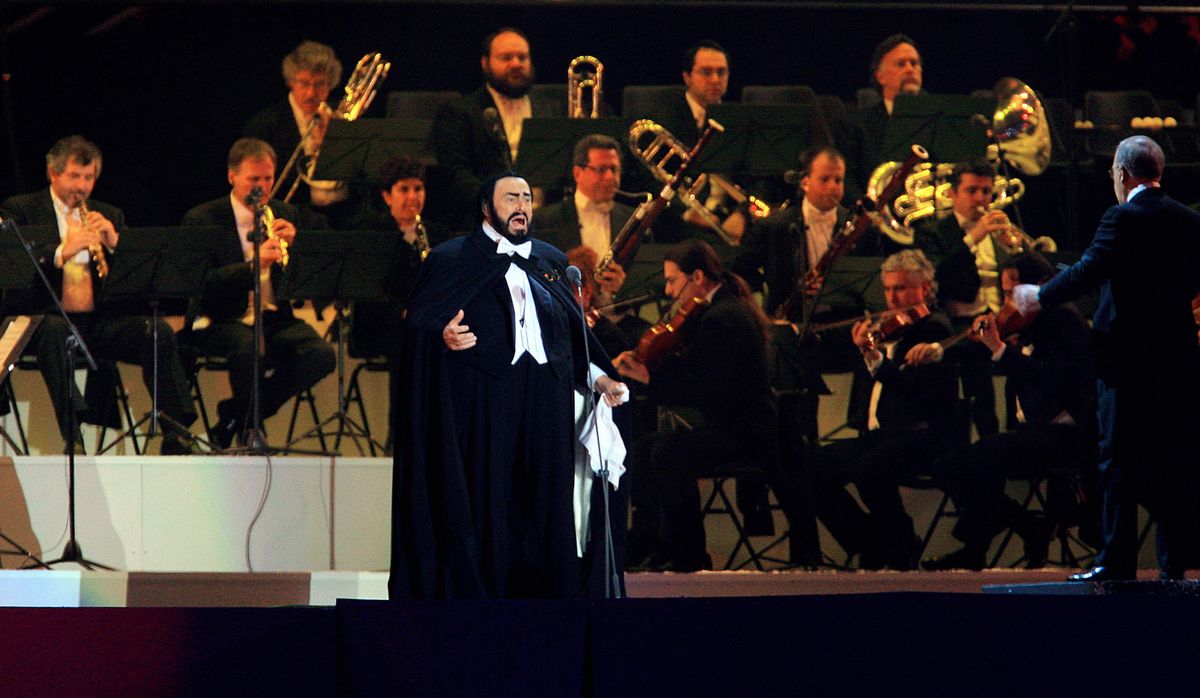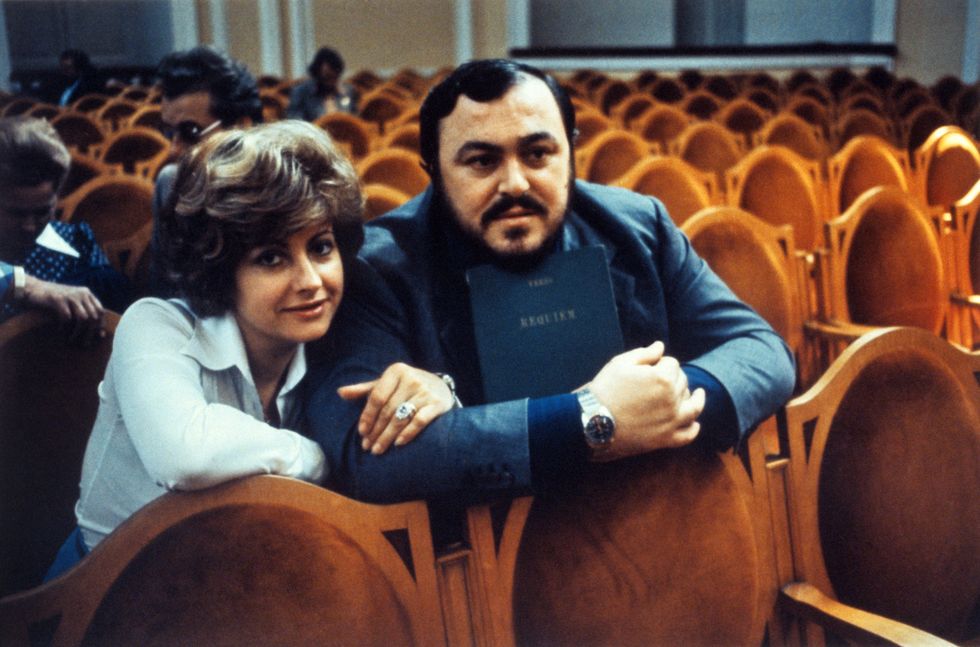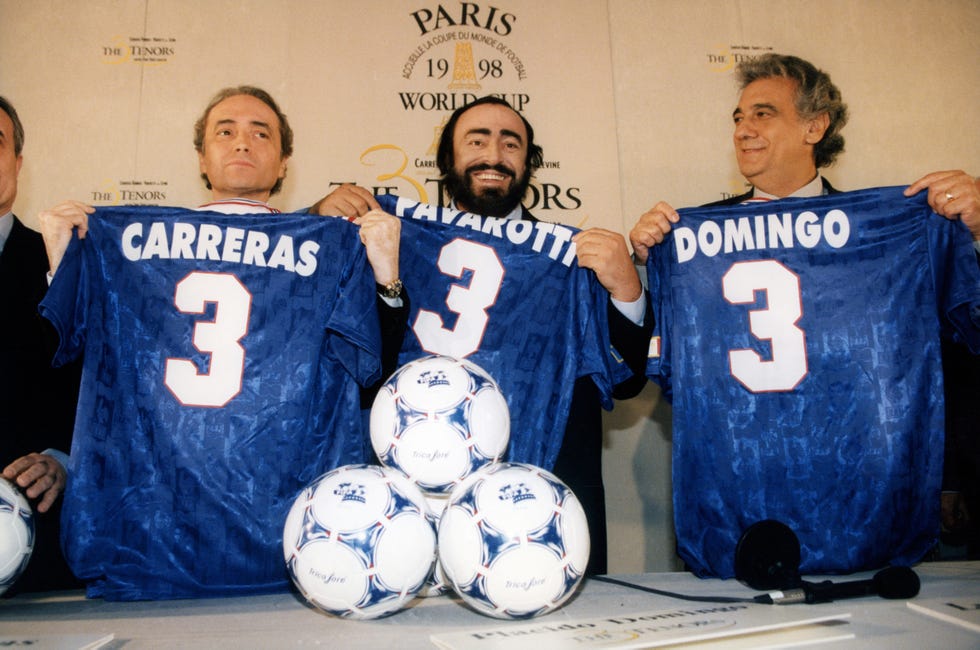You are viewing the article Pavarotti Once Quit Singing, Then Came Back and Became an Opera Legend at Lassho.edu.vn you can quickly access the necessary information in the table of contents of the article below.

“Vincero!” or “I will conquer!” became a catchphrase associated with Luciano Pavarotti, one of the most celebrated and most widely known opera stars ever to grace the stage. As a proclamation, it befits the large Italian man with an even larger voice, who from humble origins became a globally recognized artist with fame and talent that transcended the cosseted confines of opera houses to become part of the mass popular culture.
But his thrilling vocal superiority may never have been shared with the world due to a vocal condition discovered during his early years of musical study. A condition that forced the tenor to decide to give up singing for good.
More than a decade following his death in 2007 at age 71 from pancreatic cancer, Pavarotti’s epic life and talent are celebrated once again in the documentary Pavarotti, directed by Ron Howard. “What he does is unbelievable,” Howard told CBS This Morning of his subject’s abilities. “It’s almost athletic. It’s like a feat.”
Pavarotti began studying singing at age 19
Born October 12, 1935, on the outskirts of the northern Italian city of Modena, Pavarotti would go on to become one of the most commercially successful opera singers of all time. Growing up in a working-class environment – his father was a baker and amateur tenor, his mother a factory worker – Pavarotti first dreamed of becoming a football goalkeeper before taking jobs teaching elementary school and selling insurance.
He began studying singing seriously at age 19. His vocal abilities had come to the attention of local tenor Arrigo Pola who would teach the young singer at no charge. Pavarotti also credits early lessons by Ettore Campogalliani as having a huge effect on his career. Though he continued to enter competitions, his first six years of training resulted in only a few small-town recitals.
A nodule developed on his vocal cords, forcing him to quit music
It was during this period he developed a troubling issue that affected his voice. According to his autobiography Pavarotti:My Own Story, a nodule had formed on one of his vocal cords. Pavarotti blamed the growth for what he called a “disastrous” concert appearance in the town of Ferrara.
Disillusioned due to his ongoing lack of success and now a medical condition affecting his singing, Pavarotti decided it was time to quit his passion and turn his attention elsewhere. Yet, very soon after making the decision to walk away, his voice improved. The performer credited his recovery to the emotional and psychological release of having made the decision to quit.
Once the nodule was healed, Pavarotti’s natural voice ‘came together’ and his career began to skyrocket
The nodule was gone, Pavarotti said. Not only was it gone, but he said he had also achieved purity and ease to his singing which he had been striving for over years of training. “Everything I had learned came together with my natural voice to make the sound I had been struggling so hard to achieve,” he said.
This new sound and technique would carry him through to his debut as Rodolfo in Puccini’s La Bohéme at Reggio Emilia, Italy, in 1961. “The beginning, I am an elementary school teacher,” he told the BBC in 2005. “And on April 21, 1961, I became a tenor. That is a very, very significant date for me.”
More than a decade later he would cement his place in opera history when he performed at New York’s Metropolitan Opera House on February 17, 1972. Starring as Tonio in Donizetti’s La Fille du Régiment alongside Joan Sutherland, Pavarotti stunned the audience by delivering nine successive high Cs in the aria. He received 17 curtain calls that evening.
Pavarotti would go on to perform almost 400 times at New York’s Metropolitan and would appear in the first Live From the Met television broadcast in 1977, fittingly in a production of La Bohéme. His farewell appearance in opera was also at the Met, on March 13, 2004.
“In his concerts, Luciano would throw his arms out wide, waving his white handkerchief, welcoming everyone,” American soprano Shirley Verrett said. “People felt happier in his presence, and that’s the way he was offstage too, open and giving.”
He was criticized for canceling performances and inability to read music properly
Though praised for his voice, Pavarotti was often criticized for his inability to read music well and was unpopular with conductors due to telling them the correct tempo he believed was appropriate. Towards the end of his career, his professionalism was called in to doubt over lazy and questionable musicianship and frequently canceling performance dates. In 1989 he was banned from appearing at the Lyric Opera of Chicago after canceling 26 performances over the course of a decade.
But his fame would go on to eclipse the opera world, thanks in part to his media-savvy American manager Herbert Breslin who booked the performer as a musical guest on Saturday Night Live, in American Express advertisements, as leader of New York’s Columbus Day Parade, and in the poorly received Hollywood movie Yes, Giorgio.
Pavarotti was ‘unofficially in charge’ of The Three Tenors
Pavarotti was happy to mix things up musically, too. In 1990 the public was introduced to a new kind of pop supergroup, one comprised of three of the greatest male voices alive at the time. The Three Tenors were Pavarotti, Plácido Domingo and José Carreras, and they began their decade-plus collaboration in Rome, Italy on the eve of the 1990 FIFA World Cup Final.
“If professional egos were on the line for this spectacular, none of the tenors showed it,” wrote a critic in The New York Times of the Rome event. “They smiled endlessly at one another and mugged unabashedly, especially Mr. Pavarotti, the sole Italian in the group and the one who seemed to be unofficially in charge. At one point, he exchanged high fives with Mr. Carreras and they passed each other in the wings.”
The group would perform together at three further World Cup Finals and produce best-selling albums and videos of their live recordings, including their appearance in 1994 at Dodger Stadium in Los Angeles which was watched by more than one billion people worldwide. They last appeared together in 2003.
Dubbed “popera” and “stadium classical,” the Three Tenors introduced classical music to the global mass market and helped pave the way for artists such as Josh Groban and Andrea Bocelli. The album of their 1990 concert sold more than five million copies in the U.S. when it was released.
Pavarotti’s life was cut short due to a battle against pancreatic cancer
Helping increase his visibility to pop music fans, Pavarotti began staging Pavarotti and Friends charity concerts in the early 1990s featuring rock stars such as Sting, Bono, Bryan Adams, Stevie Wonder, Celine Dion and Elton John.
In 2004 Pavarotti announced a 40-city farewell tour. It was during the tour, in July 2006, he was diagnosed with pancreatic cancer, succumbing to the disease on September 6, 2007. At the time of his death, Pavarotti held two spots in the Guinness Book of World Records: one jointly with Domingo and Carreras for the best-selling classical album of all time, the first Three Tenors album, and the other for the greatest number of curtain calls (165).
“I think an important quality that I have is that if you turn on the radio and hear somebody sing, you know it’s me,” Pavarotti once said of the power and attraction of his singing. “You don’t confuse my voice with another voice.”
Thank you for reading this post Pavarotti Once Quit Singing, Then Came Back and Became an Opera Legend at Lassho.edu.vn You can comment, see more related articles below and hope to help you with interesting information.
Related Search:

